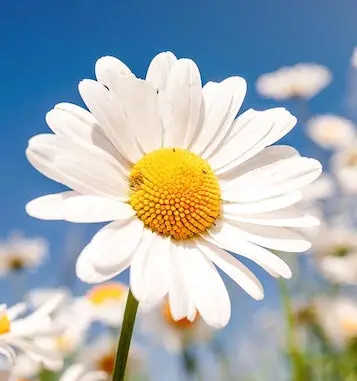‘Ups-a-daisy’ is an exclamation made when encouraging a child to get up after a fall or when lifting a child into the air.
Ups-a-daisy
What's the meaning of the phrase 'Ups-a-daisy'?
What's the origin of the phrase 'Ups-a-daisy'?
It is difficult to choose which of the numerous variants of the expression to use as the heading of this piece. As with many words that are said to small children, it is more often a spoken term than one that appears in print and this has led to much inconsistency about how it is spelled. In fact, I can’t think of a single term that appears in so many different spellings; for example:
Upsidaisy
Upsa daesy
Upsy-daisy
Oops-a-daisy
Oopsy-daisy
Hoops-a-daisy
The form in which it is now most commonly spoken and spelled is ‘oops-a-daisy’. The first known printed record of any form of the term is in Clough Robinson’s The dialect of Leeds and its neighbourhood, 1862:
Upsa daesy! a common proclamation when a child, in play, is assisted in a spring-leap from the ground.
This was preceded by ‘up-a-daisy’, which has its own variations of spelling – ‘up-a-dazy’, ‘up-a-daisey’, etc. Jonathan Swift used this in his collection of letters, which was published in 1711 as The Journal to Stella:
Come stand away, let me rise… Is there a good fire? – So – up a-dazy.
The earlier dialect term ‘upaday’, which has the same meaning, appears to be the source. The ‘daisy’ part is a fanciful extension of ‘day’, perhaps alluding to the child being on the ground amongst the daisies. Of course, the name daisy itself derives from ‘day’ – the flower, which closes at night and exposes its yellow centre in sunlight, was thought of as the day’s eye.
Not content with spawning so many forms, ups-a-daisy also has a role in the coining of the word ‘lackadaisical’. This first appears in the language in 1768 and can be traced backwards to ‘alack-the-day’, which dates to at least Shakespeare’s usage of it in Romeo and Juliet, 1592:
Shee’s dead, deceast, shee’s dead: alacke the day!
‘Ups-a-daisy’ is clearly also the direct source of ‘whoops-a-daisy’. This has a different meaning and is an exclamation made after a stumble or other mistake. It is usually said by the perpetrator of the error and the saying out loud is a public acknowledgement, somewhat like ‘mea culpa’. ‘Whoops-a-daisy’, and the shortened forms ‘whoops’ and ‘oops’, are all American in origin. The expression is first recorded, as ‘Whoopsie Daisy!’, in the New Yorker, in September 1925.
In the 1999 film Notting Hill, Hugh Grant’s character falls over, saying ‘whoops a daisies’. Julia Roberts’ character then says:
“No one has said ‘whoops a daisies’ for fifty years and even then it was only little girls with blonde ringlets.”
Maybe that’s true in California, but it’s rather surprising that the film’s English screenwriter, Richard Curtis, gave her that line in a film set in London. Like many in the UK, I still use the phrase frequently, but, as a large elderly man with a small amount of straight brown hair, I don’t qualify on any of Roberts’ criteria.
See other phrases that were coined in the USA.
The history of “Ups – a – daisy” in printed materials
Trend of ups – a – daisy in printed material over time
Related articles
Related phrases and meanings
Browse more Phrases
About the Author

Phrases & Meanings
A-Z
A B C D E F G H I J K L M N O P Q R S T UV W XYZ
Categories
American Animals Australian Bible Body Colour Conflict Death Devil Dogs Emotions Euphemism Family Fashion Food French Horses ‘Jack’ Luck Money Military Music Names Nature Nautical Numbers Politics Religion Shakespeare Stupidity Entertainment Weather Women Work
How did we do?
Have you spotted something that needs updated on this page? We review all feedback we receive to ensure that we provide the most accurate and up to date information on phrases.
